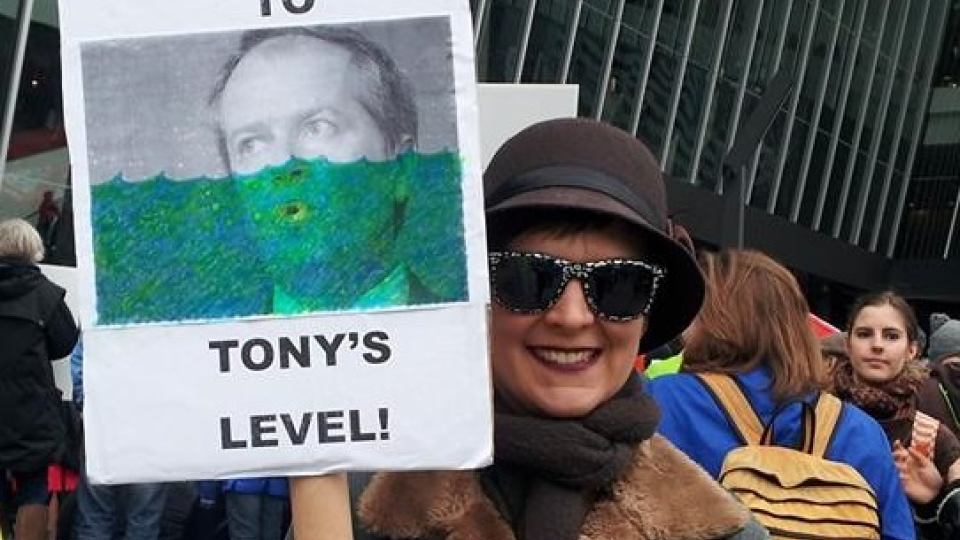Labor turns its back on asylum seekers

The results of the recent Australian Labor Party (ALP) conference vote on boat turnbacks shows why building a progressive alternative to the left of the ALP in Australia today is urgently needed.
Many ALP members are shocked and appalled at the conference outcome. Some have threatened on social media to tear up their membership cards. Those members opposed to Labor’s race to the bottom on refugees are facing stark choices — either they make their peace with Labor’s position or they work to build a mass movement for refugees and against racism outside and independent of Labor’s interests.
Groups like Labor4Refugees have been toiling for years to improve the ALP platform at previous conferences and looked like they might be in with a chance this year. But the ALP leadership is committed to a policy of deterring asylum seekers and worked to prevent any policy change at the conference.
Remember the previous ALP National Conference in 2011, when then-federal immigration minister Chris Bowen and then-prime minister Julia Gillard tried to secure support for the Malaysia asylum seeker deal at the conference by offering to increase Australia’s refugee intake from 13,750 to 20,000 a year? Sound familiar?
The 2011 ALP conference paved the way for Gillard to reopen the detention hell-holes on Nauru and Manus Island in 2012 and for then-prime minister Kevin Rudd to introduced the PNG solution in 2013.
Two things are clear from this outcome: First, that working within Labor to change it into its opposite is exposed as an exercise in futility; and second, that the refugee rights movement must maintain its political independence if it is to defeat the bipartisan politics of deterrence.
In May, the ACTU congress improved its policy on refugees, thanks to the efforts of refugee rights activists and progressive unionists. ACTU policy now includes onshore assessment of refugee claims, permanent protection of those found to be refugees, support for the right of asylum seekers to work and, importantly, opposition to the policy of turning back boats.
The result at the ALP conference, however, revealed that some union leaders were prepared to defy their own pro-refugee policies to vote for boat turnbacks. While it is encouraging that other unions voted against turnbacks, this needs to be urgently taken up in the union movement.
Having a pro-refugee policy on the books of the ACTU and individual unions is meaningless unless workers can be convinced that they have interests in common with asylum seekers and refugees. The real enemies of working people are those who live off their exploitation and allowing racism to divide us only strengthens the hand of the boss.
In times of economic insecurity, it is even more crucial that progressive unions lead the challenge to the racism and bigotry that the federal government and movements such as Reclaim Australia are promoting.
The support given to boat turnbacks by the Construction, Forestry, Mining and Energy Union (CFMEU) and Maritime Union of Australia (MUA), threatens to set this process back within the union movement and risks emboldening racist and xenophobic views among the Australian working class.
Those union leaderships who supported Bill Shorten’s position fell for two lies: First, they were convinced by the argument that the only way to get rid of the Australian Building and Construction Commission and the Royal Commission into Trade Union Governance and Corruption is to vote Labor back into government. Second, they believe that the only way to get Labor elected is to back Shorten on boat turnbacks to “neutralise” it.
It is well-known that in the lead up to the ALP conference, Richard Marles visited refugee rights groups to test support for a turnbacks policy, and trade unions to secure their agreement not to support the Labor4Refugees’ amendments.
At the same time, Brad Chilcott, Welcome to Australia national director and Labor left delegate to the conference, made a public call for the refugee movement to support boat turnbacks, feeding on the demoralisation felt by some refugee supporters to persuade them to acquiesce on the issue.
This is an affront to the courageous stance members of the MUA and CFMEU took when they faced off against then-prime minister Rudd during the Oceanic Viking incident in 2009. Rudd refused to allow 78 Tamil asylum seekers rescued at sea off Indonesia by the Oceanic Viking — a customs vessel — to be brought to safety in an Australian port. The two unions donated $10,000 to the asylum seekers at the time.
Other unions, such as the Textile, Clothing and Footwear Union of Australia (TCFUA), Australian Manufacturing Workers Union, Australian Services Union (ASU) Vic, SA, Qld and NSW/ACT Services branch, and the Finance Sector Union voted against turnbacks.
According to the Australian Financial Review, in addition to the CFMEU and MUA, sections of United Voice and other branches of the ASU sided with Shorten.
The Shop Distributive and Allied Employees' Association was “absent” for the vote and United Voice was split on the issue across their state branches, according to conference observers.
Michele O’Neill, from the TCFUA and delegate from the Victorian left spoke passionately at the protest outside the conference and again during the debate on the floor. [See this article in Green Left Weekly for a transcript of her speech.]
In the end, Labor4Refugees amendment to ban boat turn backs was defeated 58% to 42%. The second Labor4Refugees amendment on offshore processing was also defeated. No counts were requested, which meant individual votes could not be recorded.
[Susan Price is a national co-convener of the Socialist Alliance.]